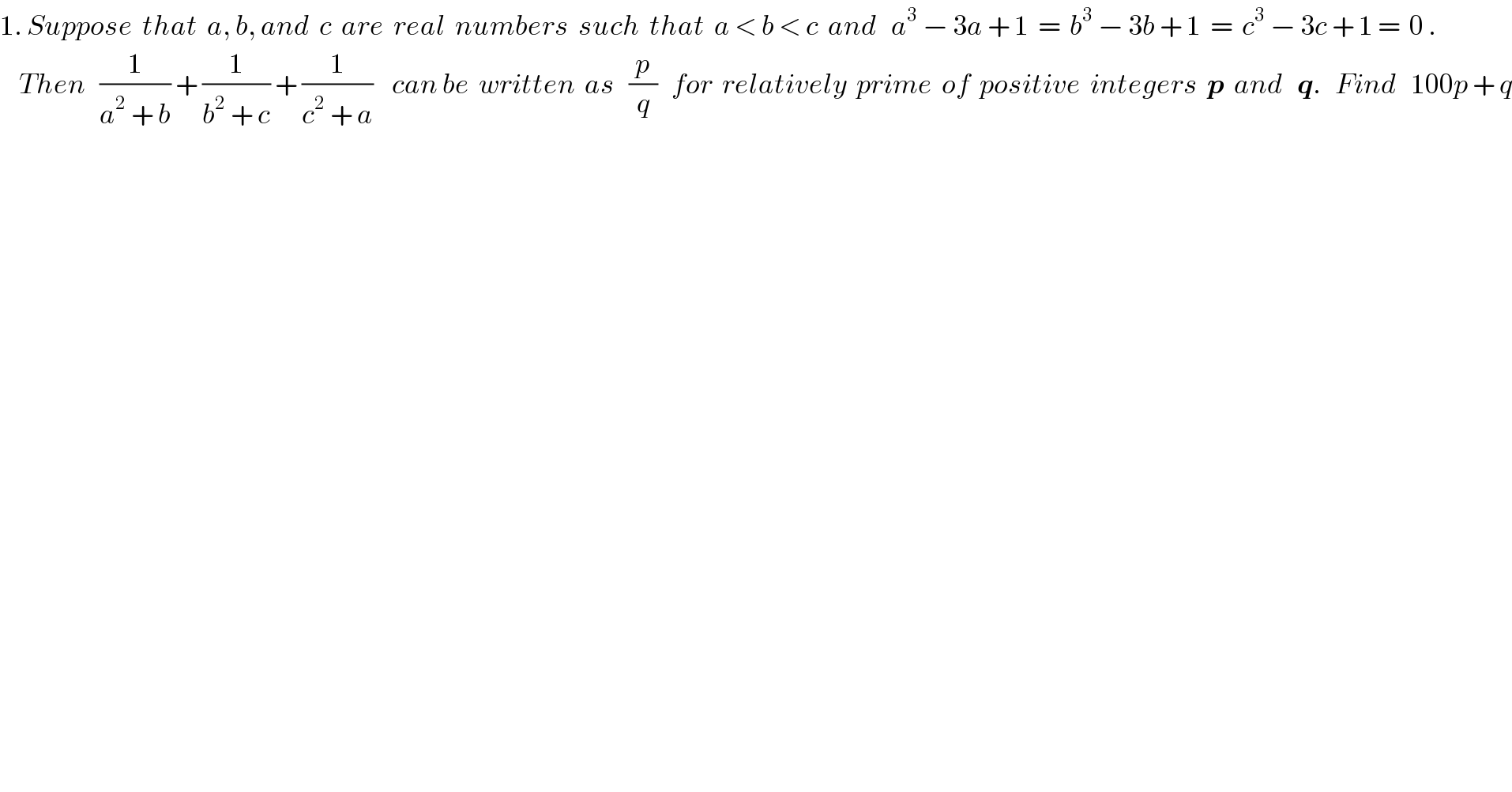
Question Number 32609 by naka3546 last updated on 01/Apr/18

$$\mathrm{1}.\:{Suppose}\:\:{that}\:\:{a},\:{b},\:{and}\:\:{c}\:\:{are}\:\:{real}\:\:{numbers}\:\:{such}\:\:{that}\:\:{a}\:<\:{b}\:<\:{c}\:\:{and}\:\:\:{a}^{\mathrm{3}} \:−\:\mathrm{3}{a}\:+\:\mathrm{1}\:\:=\:\:{b}^{\mathrm{3}} \:−\:\mathrm{3}{b}\:+\:\mathrm{1}\:\:=\:\:{c}^{\mathrm{3}} \:−\:\mathrm{3}{c}\:+\:\mathrm{1}\:=\:\:\mathrm{0}\:. \\ $$$$\:\:\:\:{Then}\:\:\:\frac{\mathrm{1}}{{a}^{\mathrm{2}} \:+\:{b}}\:+\:\frac{\mathrm{1}}{{b}^{\mathrm{2}} \:+\:{c}}\:+\:\frac{\mathrm{1}}{{c}^{\mathrm{2}} \:+\:{a}}\:\:\:\:{can}\:{be}\:\:{written}\:\:{as}\:\:\:\frac{{p}}{{q}}\:\:\:{for}\:\:{relatively}\:\:{prime}\:\:{of}\:\:{positive}\:\:{integers}\:\:\boldsymbol{{p}}\:\:{and}\:\:\:\boldsymbol{{q}}.\:\:\:{Find}\:\:\:\mathrm{100}{p}\:+\:{q} \\ $$
